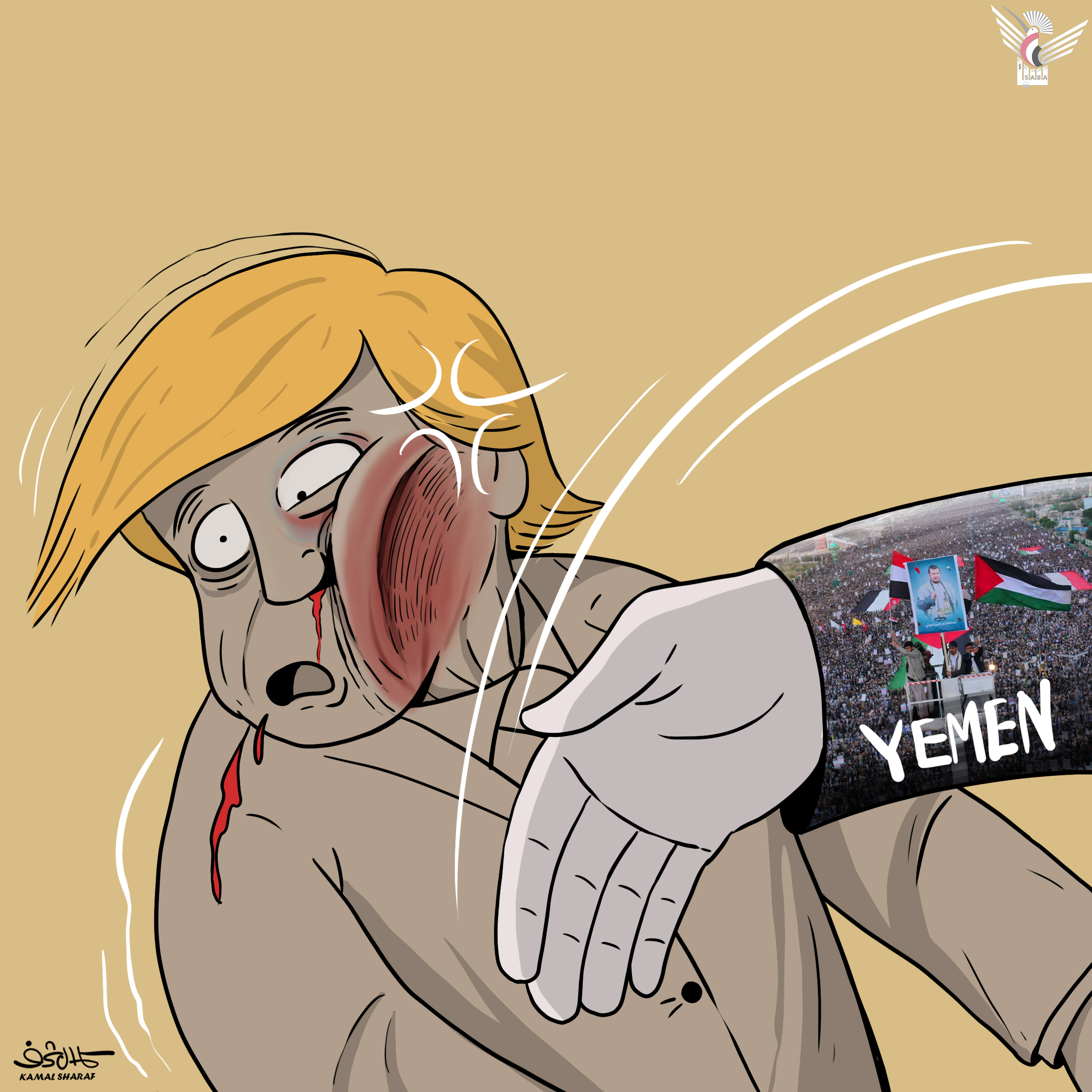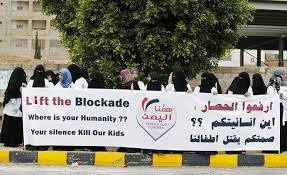SANAA, Jan. 21 (Saba) -The coalition has imposed a naval and air blockade on Yemen that has severely restricted the flow of food, fuel, and medicine to civilians, in violation of international humanitarian law, The coalition closed all of Yemen’s entry points .
The UN considers Yemen to be the world’s largest humanitarian crisis, with 14 million people at risk of starvation and repeated outbreaks of deadly diseases.
In a continuous challenge to international conventions and norms, the US-Saudi aggression continues to prevent dozens of ships loaded with oil derivatives, food and medicine from entering the port of Hodeidah in western Yemen, which reflected on the lives of citizens, and increased their human suffering.
The Saudi-led coalition’s restrictions on imports have worsened the dire humanitarian situation. The coalition has delayed and diverted fuel tankers, closed critical ports, and stopped goods from entering seaports. Fuel needed to power generators to hospitals and pump water to homes has also been blocked.
There are food and wheat products that are held for different periods. The number of ships increases and decreases due to the arrival of ships to the area of detention and the release of some ships.
The negative repercussions of the siege and piracy carried out by the coalition forces, especially Saudi and Emirati forces at sea, have worsened and increased the rates of diseases and epidemics that have killed the population in the city center by preventing the entry of medicines and medical solutions.
Regarding the situation of hospitals in the West Coast, deputy director of the health office in Hodeidah Khaled Al-Houry said, "Hospitals need oil derivatives, there is a lack of equipment, a shortage of drugs and more need of medicines, as the forces of aggression allow their entry from far roads and late periods.”
The countries of aggression ignored the international permits that are given to ships to enter the port of Hodeidah, and the residents considered it an increase in their suffering and a stranglehold on them.
Officials at five hospitals in the Yemeni governorates of Hodeida, Taizz, and Sanaa told Human Rights Watch that the lack of fuel was having a “catastrophic” impact on their operations. Four of the five hospitals – including the two largest in Yemen – were entirely dependent on generators, powered by fuel, to operate. The hospitals serve thousands of people.
Dr. Nasr al-Qadsi, the general director of Yemen’s second-largest hospital, in Sanaa, said the hospital needed 60,000 liters of fuel a month to power its generators, generate oxygen, and run its ambulances and buses for staff, the hospital’s water supplier stopped providing water, telling the hospital it would have to supply the fuel to get more water. “Water and electricity and oxygen are very essential,” al-Qadsi said. “And we have problems getting all of them.”
Dr. Abdul Latif Abu Taleb, the head of Yemen’s largest hospital, also in Sanaa, which can admit about 1,000 patients, said that the November 6 decision “caused us great panic… direct[ing] all our concerns to the pursuit of the necessary diesel material to keep the hospital working.” He added: “I have 105 patients in the intensive care unit on monitors and respirator devices. If the hospital power supply stopped, a disaster will happen.”
The blockade especially worries some 17 million Yemenis who do not know where their next meal will come from. As supplies run low, food prices rise dramatically, putting thousands more at risk.
Importing medical supplies is crucial to prevent a health catastrophe and contain a new outbreak of diphtheria, which is putting the lives of nearly one million children at risk. Over 120 diagnoses and 14 deaths have been reported in the last weeks.
Yemen has the obligation to meet the needs of its population; this requires allowing essential supplies to enter and be distributed throughout the country.
Reopening all of Yemen’s land, air, and sea ports to commercial shipments, which before November made up 80 percent of all imports, is crucial to any effort to address what the UN has described as the world’s “worst humanitarian crisis.
Coalition military actions have violated laws-of-war prohibitions on restricting humanitarian assistance and on destroying objects essential to the survival of the civilian population. These violations, as well as the coalition’s disregard for the reported suffering of the civilian population, suggest that the coalition may also be violating the prohibition against using starvation as a method of warfare, which is a war crime.
The Security Council should urgently sanction Saudi and other coalition leaders responsible for blocking food, fuel, and medicine, causing hunger, sickness, and death.
The UN Security Council should impose a travel ban and asset freeze on senior leaders of the coalition, including Mohamed bin Salman, for their role in violations of international humanitarian law in Yemen, Human Rights Watch said. Under Security Council Resolution 2216, the Yemen Sanctions Committee can designate “individuals or entities” for targeted sanctions if they are “engaging in or providing support for” acts that “[obstruct] the delivery of humanitarian assistance to Yemen or access to, or distribution of, humanitarian assistance in Yemen.”
Individuals who willfully commit serious violations of international humanitarian law may be prosecuted for war crimes. This would include deliberately using starvation of civilians as a method of warfare by depriving them of objects indispensable to their survival and by impeding humanitarian aid.
Military commanders and civilian leaders may be prosecuted for war crimes as a matter of command responsibility if they knew or should have known about the commission of such crimes and took insufficient measures to prevent them or punish those responsible.
The humanitarian community in Yemen calls on the Saudi-led coalition to immediately reopen all Yemeni ports to commercial and humanitarian cargo, without which millions of people are at risk of starvation and death.
The World Health Organization (WHO), UNICEF and the World Food Programme (WFP) also released a joint statement, warning that “More than 20 million people, including over 11 million children, are in need of urgent humanitarian assistance.” The three agencies say they have the lifesaving food, medicine and supplies that are needed to save the lives of the affected, but “we must have the access that is currently being denied.”
Humanitarian flights to Sana’a must be allowed to resume immediately to ensure the movement of aid workers and the transport of relief cargo.
Written by Mona Zaid

| more of (International) |




